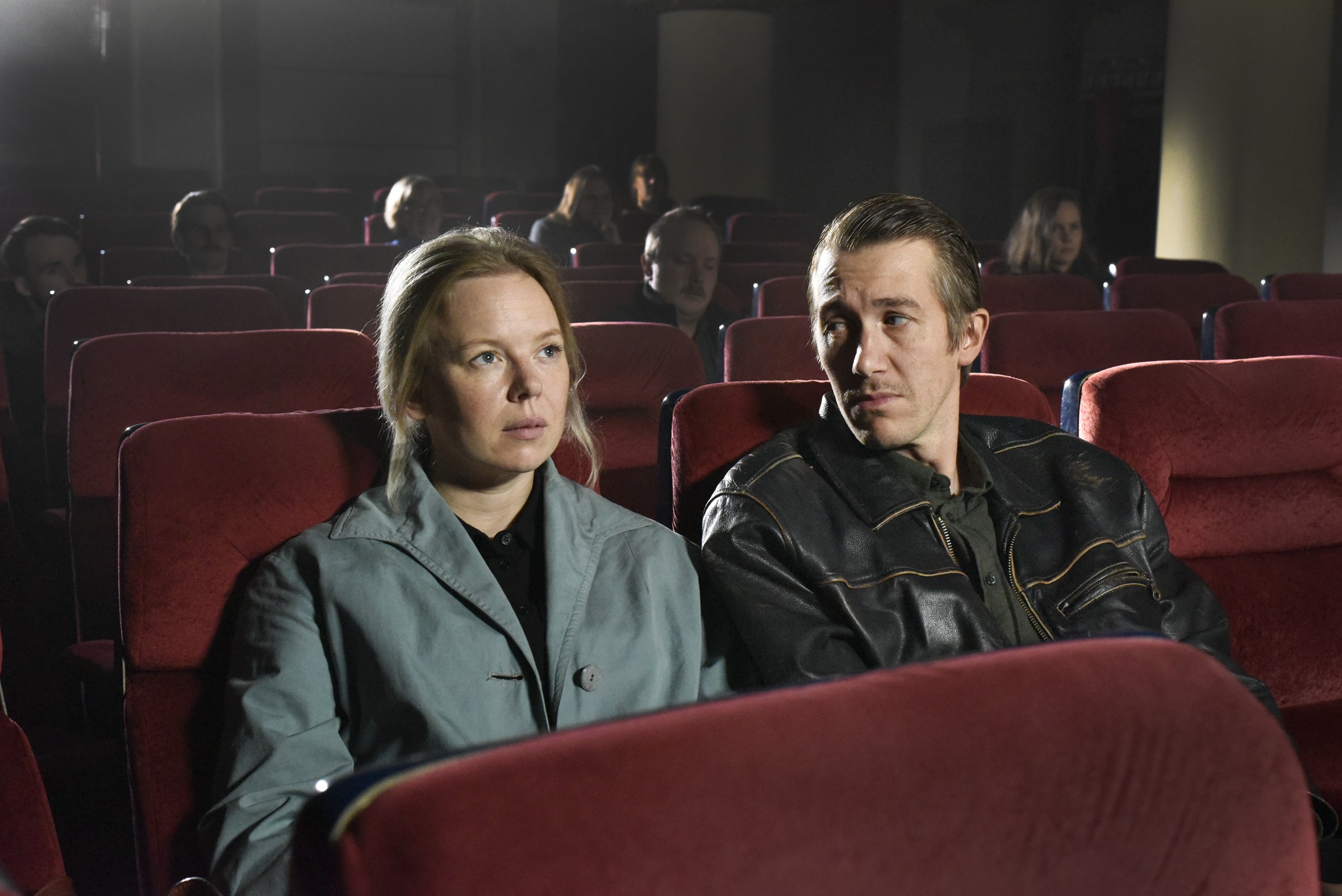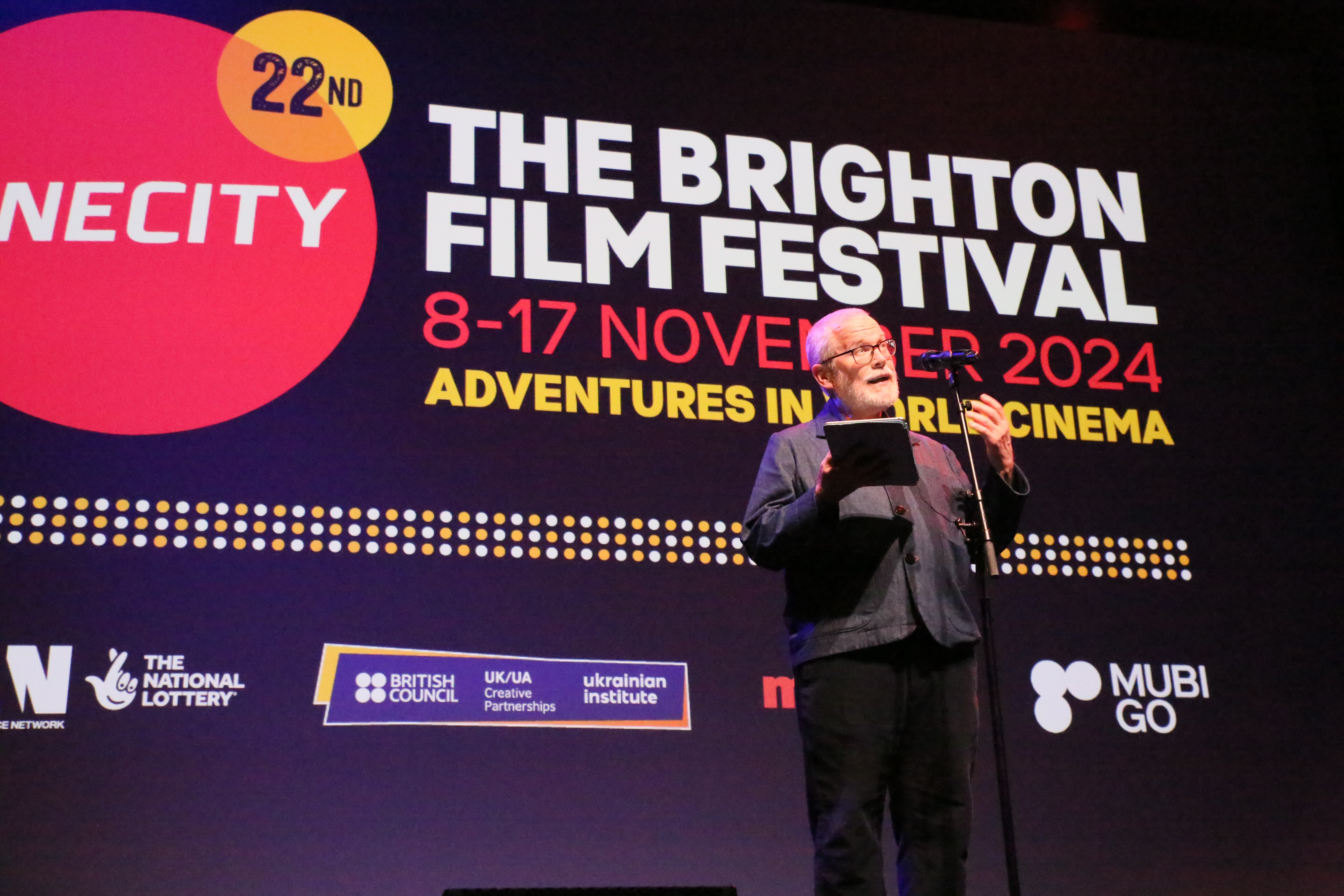
STUDENT REVIEW: FALLEN LEAVES
Fallen Leaves: How We Can Escape From The Mundanities of Life by Ellie Bridge (University of Sussex)
Reviewed as part of CINECITY The Brighton Film Festival – Duke of York’s 11 Nov 23.
Aki Kaurismäki’s twentieth feature-length film, Fallen Leaves (2023) is one full of bittersweet comfort and relatability. The Finnish romantic comedy brings some incredibly balanced moments of sadness and hilarity, and gives an introspective view on working-class love in Helsinki which can relate to many across the globe.
Fallen Leaves focuses on Ansa (Alma Pöysti), a supermarket worker who lives alone, and Holappa (Jussi Vatanen), an alcoholic construction worker. The two meet at a karaoke bar and attempt to build a relationship, despite life’s obstacles. Kaurismäki initially presents their lives as mundane and ordinary; beige wide shots of working their jobs and coming home, with sparse dialogue and no background music. However, their lives become subtly splashed with colour and music once they meet. Ansa and Holappa share a plethora of sweet and tender moments, often with dry, deadpan humour and adoring glances that reminded me of my own awkward early-romance experiences. Their incredible performances and Kaurismäkis authentic writing created a relationship that I was begging to succeed throughout the film, and became heartbroken every time I thought it wouldn’t.
While their relationship is the focal point in Fallen Leaves, I am also drawn to the other relationships in the characters’ lives that seem to create escape for the characters in a world where they feel like they are constantly navigating hardships. One of my favourite moments in the film is when Ansa and her friend Liisa (Nuupu Koivu) both walk out of their supermarket job after it is discovered that they have been stealing out of date food. They stroll out of the supermarket into the night, holding hands, swinging their arms and sharing a poignant smile before going their separate ways home. Similarly, Holoppa shares moments with his friend Huotari (Janne Hyytiäinen) in which their friendship helps both characters to escape their work, albeit briefly, such as the night they go out to karaoke. Although friendships are less of a focus in the film, I still feel they are important. It is both refreshing and genuine to have scenes which highlight platonic relationships, and create the same level of liberation from mundanity as their romantic relationships give them.
The Russia-Ukraine war is also referenced throughout the film, an especially poignant and real issue that those in Finland and other countries close to Russia or Ukraine face. Its recurrent use through radio suggests that it is a constant in the lives of those in Finland, an underlying fear tainting their minds. With this, it can be suggested that romance, friends and family are all that more important in trying to distract from the woes of life in modernity where war is seemingly always on the cusp. Fallen Leaves shows us that romance, friendship and even pets can be a guiding light through both the ordinary and tragedy.
I have left this film with a sense of hope, and an appreciation for those in my own life that bring light and colour to it. The beauty of Fallen Leaves is how it tells us that even through the hardest points in life, there is always someone or something to look forward to. Relatable, hilarious, melancholy and bittersweet; it is a film everyone should see.
